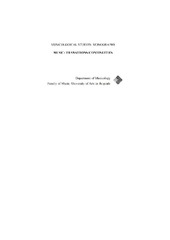Приказ основних података о документу
The Works Commisioned by Belgrade Music Festival (BEMUS) 2002–2013: Contemporary Music Creation in a Transitional Society
| dc.contributor | Veselinović-Hofman, Mirjana | |
| dc.contributor | Mikić, Vesna | |
| dc.contributor | Popović Mladjenović, Tijana | |
| dc.contributor | Perković, Ivana | |
| dc.creator | Medić, Ivana | |
| dc.creator | Janković-Beguš, Jelena | |
| dc.date.accessioned | 2018-08-05T16:48:05Z | |
| dc.date.available | 2018-08-05T16:48:05Z | |
| dc.date.issued | 2016 | |
| dc.identifier.isbn | 978-86-88619-73-8 | |
| dc.identifier.uri | http://ivanamedic.com/wp-content/uploads/2016/11/I_Medic_J_Jankovic-Begus_BEMUS-Commissions.pdf | |
| dc.identifier.uri | https://dais.sanu.ac.rs/123456789/3603 | |
| dc.description.abstract | Abstract: In this paper we discuss the role of BEMUS festival in commissioning new musical pieces from Serbian composers in the period between 2002 and 2013. We aim to highlight the high and the low points of the practice of commissioning new musical works in a transitional country such as Serbia, and attempt to foresee the consequences should the present unfavourable circumstances continue and the survival of the festival be brought into question. | en |
| dc.description.abstract | Summary: Throughout the decades of its history, Belgrade Music Festival (BEMUS), the oldest and the most prestigious classical music event in Serbia, has played a significant role in the promotion of Yugoslavian and Serbian new music. Many new works have been commissioned and/or premiered at the festival. The beginning of the new millennium – coinciding with the onset of economic transition in Serbia – has brought a renewed interest in commissions of new works, thanks to the initiative of Ivana Stefanović, a composer herself, who was the artistic director of the Belgrade Music Festival from 2001 to 2006. Her successors Sreten Krstić and Zoran Erić carried out with this concept, which resulted in a number of new works, a majority of them written for symphony orchestra. However, the ever unstable economic environment in Serbia has presented new challenges for the BEMUS festival in recent years, which have affected its programme. In this paper we discuss the BEMUS commissions in the period between 2002 and 2013 from both sociological and musicological standpoints, with an added benefit of having both the insider's and outsider's insights. We aim to highlight the high and the low points of the practice of commissioning new musical works in a transitional country such as Serbia, and attempt to foresee the consequences should the unfavourable tendencies continue and the survival of the festival be brought into question. | en |
| dc.language.iso | en | sr |
| dc.publisher | Belgrade : Department of Musicology, Faculty of Music | sr |
| dc.relation | info:eu-repo/grantAgreement/MESTD/Basic Research (BR or ON)/177004/RS// | sr |
| dc.rights | openAccess | sr |
| dc.rights.uri | https://creativecommons.org/licenses/by/4.0/ | |
| dc.source | Music: Transitions/Continuities | sr |
| dc.subject | Festival | sr |
| dc.subject | contemporary music | sr |
| dc.subject | Serbian music | sr |
| dc.subject | commissions | sr |
| dc.title | The Works Commisioned by Belgrade Music Festival (BEMUS) 2002–2013: Contemporary Music Creation in a Transitional Society | en |
| dc.type | bookPart | sr |
| dc.rights.license | BY | sr |
| dcterms.abstract | Медић, Ивана; Јанковић-Бегуш, Јелена; | |
| dc.citation.spage | 317 | |
| dc.citation.epage | 329 | |
| dc.type.version | publishedVersion | sr |
| dc.identifier.fulltext | https://dais.sanu.ac.rs/bitstream/id/11537/Medic_Begus_-_The_Works_Commissioned_by_Belgrade_Music.pdf | |
| dc.identifier.rcub | https://hdl.handle.net/21.15107/rcub_dais_3603 |

